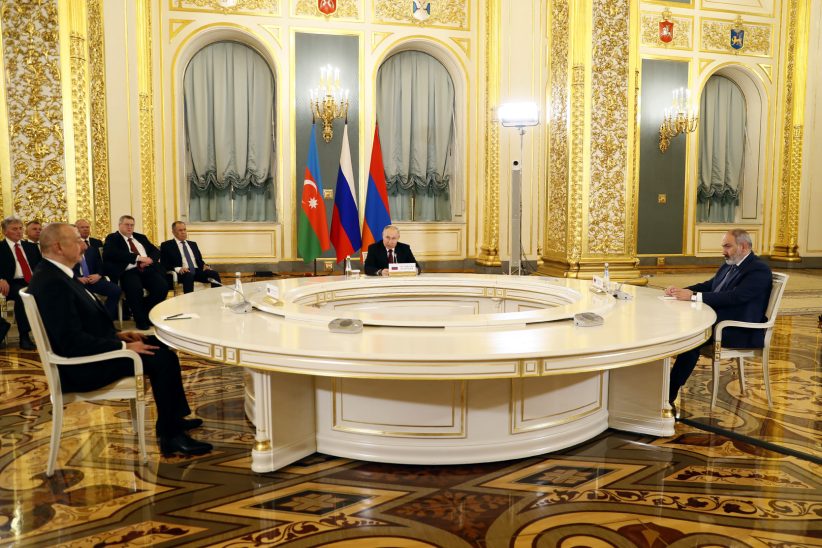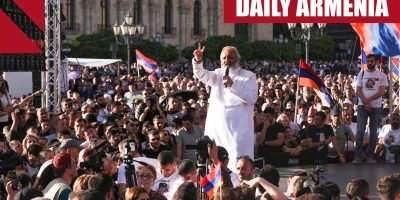By Mark Dovich
The latest round of peace talks between Armenia and Azerbaijan ended in Moscow Thursday after just 20 minutes without any apparent progress made to resolve the countries’ decades-long conflict.
Before the meeting, the Russian newspaper Kommersant reported, citing unnamed diplomatic sources, that the Kremlin was “counting on” the leaders of Armenia and Azerbaijan to sign an agreement on restoring transport connections between their countries, as well as to issue a joint statement.
In the end, Armenian Prime Minister Nikol Pashinyan, Azerbaijani President Ilham Aliyev, and Russian President Vladimir Putin signed no such agreements, though Pashinyan’s office confirmed the three countries’ deputy prime ministers would meet next week to “continue work” on resolving transport matters.
The leaders’ apparent failure to come to a transport deal is particularly striking, as observers say it is one of the issues where Armenia’s and Azerbaijan’s negotiating positions are closest.
“This is the particular issue that all the mediators have been focusing on lately,” regional analyst Tigran Grigoryan told CivilNet earlier this month. “This is the area where some sort of agreement is most feasible.”
The Moscow summit comes amid an uptick in diplomacy between Armenia and Azerbaijan, though high-level peace talks earlier this month in Washington and Brussels similarly ended without any discernible progress.
Pashinyan and Aliyev are also set to meet next week in the Moldovan capital of Chișinău with the leaders of the European Union, France, Germany. It will mark the first time the heads of Europe’s two most influential countries will join the peace talks together.
Decades of internationally mediated talks spearheaded by the Minsk Group, a body co-chaired by France, Russia, and the United States, have failed to reach a diplomatic solution to the conflict between Armenia and Azerbaijan.
The Minsk Group’s work has in effect been frozen since Russia’s full-scale invasion of Ukraine early last year, prompting the European Union to take on a more active mediating role, alongside Russia and the United States.
















